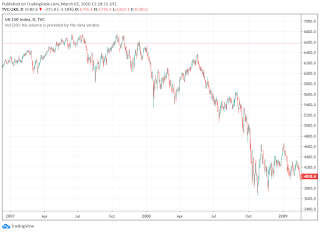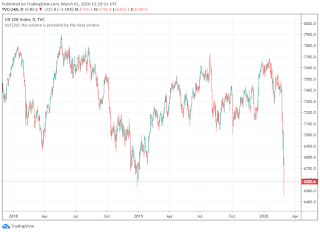At the end of last January, UK finally relinquished the EU membership in term. British MEPs, including Mr.Farage seen one of the most prominent Brexiter, have left Brussels.
Although it just started the transition period and people's activities are not practically changed until the period, it is likely the end of "Endless" talks between UK and EU about Brexit. Now, British government whose cabinet ministers were shuffled last week has to negotiate the trade deal with European Commission. The end of the transition period is set on the end of 2020 unless it is agreed to extend the period between UK and EU while Mr.Johnson does not want to do.
Even if UK (and EU) expect to reach the agreement, how it is realistic to reach a decent deal in a year? Due to the tight deadline, both sides tend to prioritize the negotiation issue on top. But the free trade agreements between EU and other large economies took much more time to be finalized, which also requires ratification. Here are some examples.
[EU-Japan Economic Partnership Agreement]
The negotiation had started since
2013,
Reached at the agreement on July-2018,
Ratified on December-2018,
Has been effective since
1-February-2019.
About 6 years to the enforcement.
[EU-Singapore FTA]
The negotiation had started since
2010,
Reached at the agreement on October-2018,
EU member states endorsed on November-2019,
Has been effective since
21-November-2019.
About 9 years to the enforcement.
[CETA, EU-Canada Economic and Trade Agreement]
The negotiation had started since
?,
The negotiation ended on
August-2014,
The agreement was signed on October-2016,
Has been effective since
21-September-2017.
More than 3 years + the negotiation period, to the enforcement.
Abolishing the relationship when UK was a member state of EU and building the trade agreement from scratch, one year sounds too short to enforce the agreed deal. It implies No-deal Brexit is inevitable rather than it as the worst option. In case of No-deal Brexit, WTO rules will be basically applied to the trades between EU and UK, which is likely to happen.
The market seemed not pricing in No-deal Brexit, but as soon as UK legally rejects any extensions of the trade talk, the market will pessimistically react.
[
Updated on 16-Oct-2020]
UK PM mentioned Britons should get ready for no-deal Brexit today as it is still unclear to reach an agreement so-called Canada-style deal. He would seek an alternative like Australia-style deal.
“A lot of progress has been made on such issues as social security and aviation, nuclear cooperation, and son on,” he said, but “for whatever reason, it’s clear from the [EU] summit that after 45 years of [UK] membership they are not willing, unless there’s some fundamental change of approach, to offer this country the same terms as Canada”.
He said that given there were only 10 weeks left until the transition period ended, he had to make a judgment about the likely outcome and to prepare the country.
“I concluded that we should get ready for 1 January with arrangements that are more like Australia’s – based on simple principles of global free trade,” he told reporters in a pooled broadcast statement.
EU and Australia started their trade negotiation in May 2018, and it seems the agreement has not been made by now since the negotiation is kicked off. It looks unrealistic for UK to reach a full agreement with EU by the end of 2020.

















